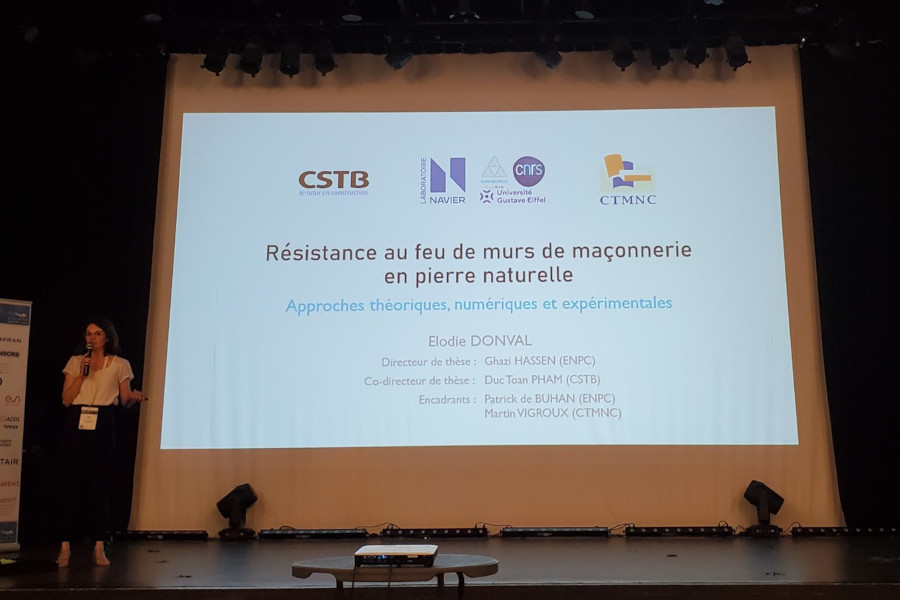
PhD thesis prize CSMA/NAFEMS 2023 – Elodie Donval
- Post by: jeremy.bleyer
- 28 May 2024
- No Comment
During the 16ème Colloque national en Calcul des Structures hosted by the CSMA (Computational Structural Mechanics Association), Elodie Donval was awarded the CSMA – NAFEMS 2023 PhD prize for her thesis entitled :
Résistance au feu des murs de maçonnerie en pierre naturelle.
Elodie has worked on her thesis at Laboratoire Navier, in collaboration with the CSTB and CTMNC , under the joint supervision of Ghazi HASSEN, Duc Toan PHAM and Patrick de BUHAN.
Summary
Natural stone is increasingly used in new buildings because of its low environmental impact. However, there are no recommendations for the fire design of natural stone buildings in normative texts such as Eurocode 6, which represents an obstacle to the use of this type of construction material. In the present work, we propose an engineer-oriented fire design method for such structures.This method addresses, in a decoupled manner, the two main effects of fire on the wall: the degradation of materials due to the rise in temperature on the one hand, and the development of a thermal curvature caused by the existence of a thermal gradient in the thickness of the wall, on the other hand. The thermal curvature, which creates additional bending moments due to the eccentricity of the initial vertical loads, is assessed by a thermoelastic homogenisation method. At the same time, the effect of the loss of strength of the materials is assessed at the block-mortar assembly level through a yield design homogenisation method. Different approaches, semi-analytical and numerical, are proposed in order to take into account both the initial heterogeneities of the assembly and those due to the loss of strength of the stone and mortar at high temperature. Finally, it becomes possible to assess the fire resistance of the wall, modelled as a shell structure in its fire deformed configuration, using a yield design approach. The direct nature of the yield design approach and the periodic homogenisation lead to quick calculations which are tailored to the engineer’s needs.In addition to the proposed models, experimental validations are carried out on two scales. Firstly, an experimental study at ambient temperature is used to characterise the strength of masonry wallettes with respect to compression loads centred or not with respect to their mid-plane, and to assess whether yield design is a reliable approach for determining the strength criterion of the assembly at ambient temperature. Then, a fire test on a full-scale wall provides a first experimental validation of the entire method.


